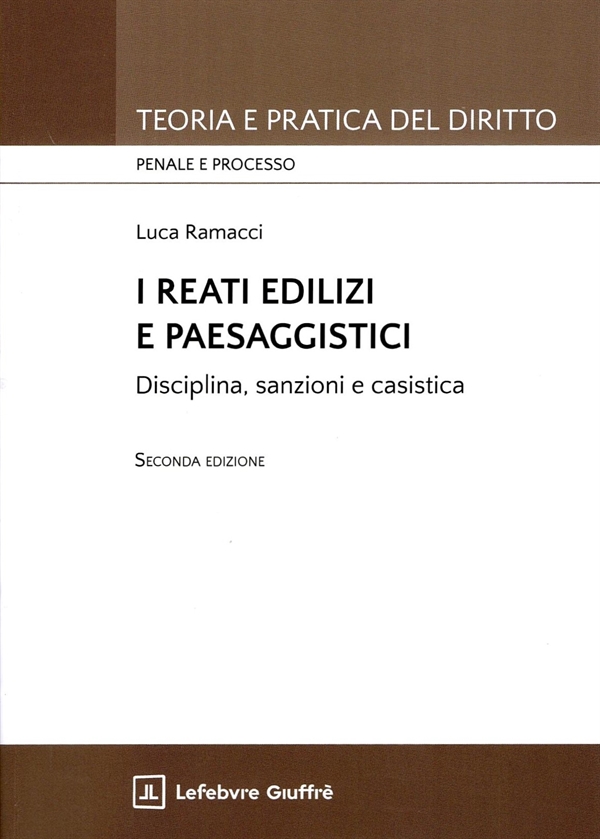Ambiente in genere. Natura ed effetti dell'AIA
- Dettagli
- Categoria principale: Ambiente in genere
- Categoria: Consiglio di Stato
- Visite: 2605
 Consiglio di Stato Sez. IV n. 2733 del 29 aprile 2020
Consiglio di Stato Sez. IV n. 2733 del 29 aprile 2020
Ambiente in genere. Natura ed effetti dell'AIA
L'autorizzazione integrata ambientale non costituisce la mera "sommatoria" dei provvedimenti di competenza degli enti chiamati a partecipare alla Conferenza di Servizi, ma è un titolo autonomo caratterizzato da una disciplina specifica che, nel caso di specie, consente la costruzione e la gestione dell'impianto alla stregua delle prescrizioni e delle condizioni imposte dall'autorizzazione medesima. In sostanza, le determinazioni delle amministrazioni coinvolte vengono "assorbite" nel provvedimento conclusivo, con la conseguenza che la efficacia delle prime non può che soggiacere al regime previsto per il secondo, non potendovi essere una pluralità di termini di efficacia, suscettibile di ledere il principio di certezza delle situazioni giuridiche, in contrasto con la ratio di semplificazione e concentrazione sottesa all'individuazione dello specifico modulo procedimentale rappresentato dalla Conferenza dei servizi ed alla unicità del provvedimento conclusivo.
Urbanistica.Demolizione e acquisizione al patrimonio comunale
- Dettagli
- Categoria principale: Urbanistica
- Categoria: Cassazione Penale
- Visite: 2695
 Cass. Sez. III n. 13147 del 28 aprile 2020 (CC 19 feb 2020)
Cass. Sez. III n. 13147 del 28 aprile 2020 (CC 19 feb 2020)
Pres. Di Nicola Est. Ramacci Ric. D’Ignoti
Urbanistica.Demolizione e acquisizione al patrimonio comunale
Il potere dovere del giudice penale di eseguire la demolizione del manufatto abusivo, disposta con la sentenza di condanna ex art. 31 del d.P.R. 6 giugno 2001 n. 380, opera anche nel caso in cui i beni siano stati acquisiti al patrimonio comunale, atteso che l'eventuale contrasto con il potere amministrativo si realizza soltanto al momento in cui il consiglio comunale abbia manifestato la volontà di non procedere alla demolizione per l'esistenza di prevalenti interessi pubblici.
Leggi tutto: Urbanistica.Demolizione e acquisizione al patrimonio comunale
Rumore.Valori tutelati
- Dettagli
- Categoria principale: Rumore
- Categoria: Consiglio di Stato
- Visite: 2474
 Consiglio di Stato Sez. II n. 2684 del 27 aprile 2020
Consiglio di Stato Sez. II n. 2684 del 27 aprile 2020
Rumore.Valori tutelati
La tutela del bene giuridico protetto dalla legge quadro n. 447 del 26 ottobre 1995, la quale mira alla salvaguardia di un complesso di valori (cfr. art. 2, co. 1, lett. a) rispetto al fenomeno dell’inquinamento acustico, coesiste con la tutela del diverso bene giuridico che è costituito dalla pubblica tranquillità, trattandosi di beni presidiati da norme con obiettivi e struttura diversi
Urbanistica.La speciale autorizzazione del Genio Civile per l’esecuzione di lavori edili negli abitati a rischio frana
- Dettagli
- Categoria principale: Urbanistica
- Categoria: Dottrina
- Visite: 5853
 La speciale autorizzazione del Genio Civile per l’esecuzione di lavori edili negli abitati a rischio frana
La speciale autorizzazione del Genio Civile per l’esecuzione di lavori edili negli abitati a rischio frana
di Massimo GRISANTI
Acque.Natura istantanea del reato di scarico con superamento dei limiti tabellari
- Dettagli
- Categoria principale: Acque
- Categoria: Cassazione Penale
- Visite: 2801
 Cass. Sez. III n. 13089 del 28 aprile 2020 (UD 19 nov 2019)
Cass. Sez. III n. 13089 del 28 aprile 2020 (UD 19 nov 2019)
Pres. Aceto Est. Liberati Ric. Recca
Acque.Natura istantanea del reato di scarico con superamento dei limiti tabellari
Il reato di scarico di acque reflue industriali, di cui all’art.137, comma 5, d.lgs. n. 152 del 2006, non può essere ritenuto di natura permanente, a meno che non si provi in concreto che si tratta di scarico continuo, e cioè che l'alterazione dell'accettabilità ecologica del corpo recettore si protrae nel tempo senza soluzione di continuità per effetto della persistente volontà del titolare dello scarico
Leggi tutto: Acque.Natura istantanea del reato di scarico con superamento dei limiti tabellari
Urbanistica.Strumento attuativo e lotto intercluso
- Dettagli
- Categoria principale: Urbanistica
- Categoria: Giurisprudenza Amministrativa TAR
- Visite: 2763
 TAR Calabria (CZ) Sez.II n. 672 del 24 aprile 2020
TAR Calabria (CZ) Sez.II n. 672 del 24 aprile 2020
Urbanistica.Strumento attuativo e lotto intercluso
Lo strumento attuativo è inutile allorquando vi sia un c.d. lotto intercluso, cioè quando il lotto oggetto dell'intervento richiesto sia collocato in un'area già interamente compromessa sotto il profilo urbanistico ed edilizio, tanto da non derivare alcuna utilità dall’adozione dello strumento di attuazione.
Leggi tutto: Urbanistica.Strumento attuativo e lotto intercluso
- Caccia e animali.Conservazione degli uccelli selvatici
- Rifiuti.Delega di funzioni
- Urbanistica.Violazione della normativa antisismica e procedure in sanatoria
- Acque.Valutazione della produzione di sedimento in area costiera sensibile (oasi)
- Rifiuti.Reato di trasporto di rifiuti senza autorizzazione
- Ambiente in genere.Competenza legislativa esclusiva statale
- Urbanistica.Rapporti tra giudicato civile e poteri della PA
- Urbanistica.Rapporti tra legislazione statale e regionale
- Urbanistica.Pendenza di un’istanza di sanatoria edilizia e ordine di demolizione
- Rifiuti.Understanding the Impacts of Transboundary Waste Shipment Policies: The Case of Plastic and Electronic Waste
Pagina 557 di 708





